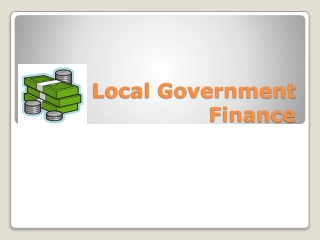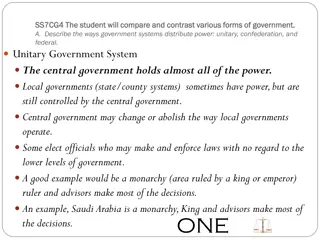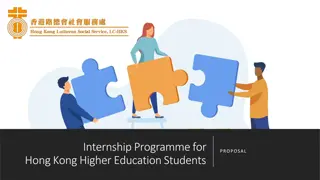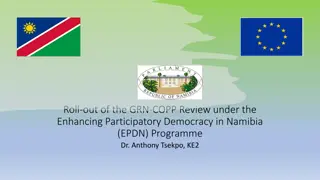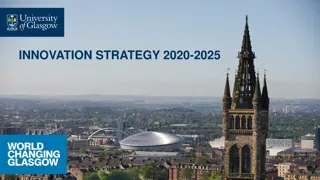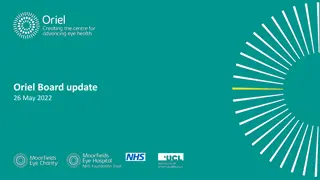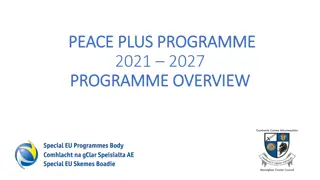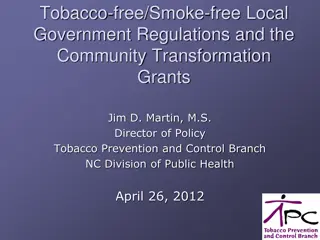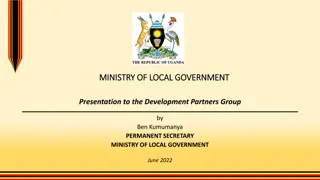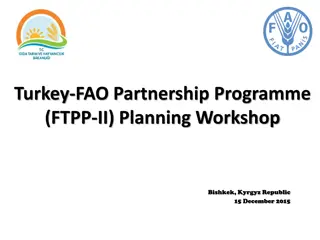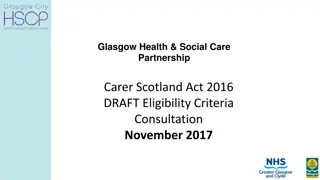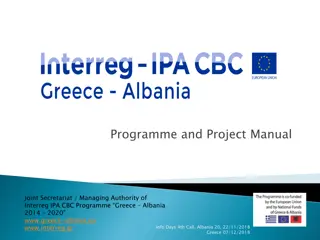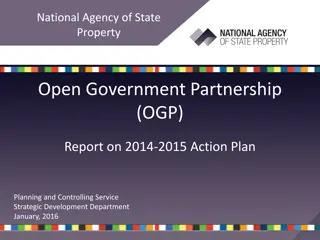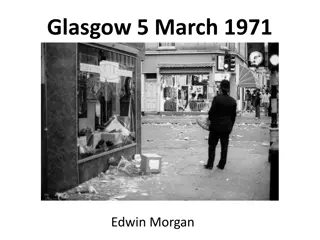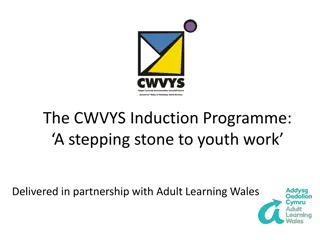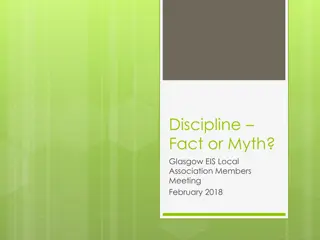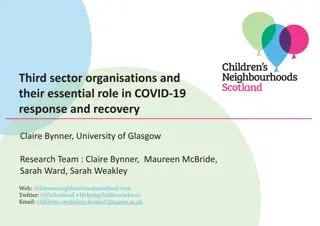Open Government Partnership: Local Programme in Glasgow
The Open Government Partnership (OGP) Local Programme in Glasgow aims to promote transparent, participatory, inclusive, and accountable governance by bringing together governments, citizens, and civil society organizations. Through collaborative efforts, the program focuses on key policy themes such as Infrastructure Transparency, Participatory Democracy, Social Accountability, and more. The Glasgow OGP Local Team is responsible for defining tasks, establishing plans, and developing an Open Government Action Plan to be submitted by July 30, 2021.
Download Presentation

Please find below an Image/Link to download the presentation.
The content on the website is provided AS IS for your information and personal use only. It may not be sold, licensed, or shared on other websites without obtaining consent from the author.If you encounter any issues during the download, it is possible that the publisher has removed the file from their server.
You are allowed to download the files provided on this website for personal or commercial use, subject to the condition that they are used lawfully. All files are the property of their respective owners.
The content on the website is provided AS IS for your information and personal use only. It may not be sold, licensed, or shared on other websites without obtaining consent from the author.
E N D
Presentation Transcript
Open Government Partnership: Local Programme Glasgow OGP Local Team 5 March 2021
2. OGP Local: Background and Introduction The Open Government Partnership (OGP) brings together governments, citizens, and civil society organisations, to promote more transparent, participatory, inclusive and accountable governance. OGP Local Programme recognises the key role that Local Governments play by being closer to the people they serve - delivering crucial services that require effective and responsive local governments. Collaboration, transparency, and citizen participation are fundamental pillars for Open Government. OGP Local membership: developing and implementing an Open Government Action Plan - a set of ambitious open government commitments co-created by government and non-governmental stakeholders.
OGP Local: Glasgow Policy Themes Thematic Deep Dives: Infrastructure Transparency, Participatory Democracy, Social Accountability, Access to Information, Open Contracting, Open Education, and Open Data. Glasgow City Council Expression of Interest identified four potential thematic policy areas of interest - public service delivery, marginalised communities, climate change, and digital governance.
3. Glasgow OGP Local Team: Responsibilities and Tasks Agree key responsibilities and tasks for Glasgow OGP Local Team. Establish an OGP Plan and timeline. Define Co-creation Process and Stakeholder Engagement arrangements. Develop an OGP Local Project Plan.
4. Developing an Open Government Action Plan The Open Government Action Plan for Glasgow must be submitted to the OGP by 30 July 2021: core to OGP Local membership, with an Open Government Strategic Vision and ambitious commitments. Action Plans can have up to five commitments - new or build on existing priorities, activities, and opportunities (must demonstrate clear improvement from current practice). Collaboration: the Action Plan must be co-created through a multi-stakeholder process, with active engagement of citizens and civil society - examples of 2020 Action Plans successfully moving co-creation online. Create spaces for engagement - enable deliberative discussions, engage diverse range of stakeholders, facilitate engagement with the Open Government Action Plan. Planning and Preparation: define and agree the Open Government process, timeline and stages (developing ideas and public call for proposals; prioritisation of proposals; engagement and participation; define and draft commitments; public consultation; and presentation of Action Plan)
Developing an Open Government Action Plan for Glasgow Team Meeting Discussion Points Draft an OGP Local Plan and timeline for Glasgow Develop Options for Glasgow s Co-creation Process and Stakeholder Engagement Potential Themes collate existing ambitions and engagement outputs Develop an OGP Local Project Plan. OGP Local Monitoring Body: review guidance on independent evaluation and assessment of the co-creation process and achieving commitments.
5. Co-creation with Civil Society and Citizens Public participation is a core component of Open Government - committed to developing an action plan through a multi-stakeholder co-creation process. Civil society organisations are key stakeholders of the OGP process: raise awareness of the OGP process; advocate for specific commitments -identify and frame problems and promote specific policy solutions; and contribute to the contents of the Action Plan - including prioritising, selecting and supporting the drafting of commitments and endorsing the final plan. OGP Local Handbook requirements: Open Government Forum: Local Government and non-governmental stakeholders, must have a space for participation in the development and review of the Action Plan; Must hold at least one meeting with civil society and non-governmental stakeholders during the co-creation of the Action Plan; Multi-stakeholder, including government and non-government representatives in the space for co-creation; and Non-governmental stakeholders must endorse the final Action Plan.
Co-creation with Civil Society and Citizens Team Meeting Discussion Points Ensuring participation and inclusion at all stages of the OGP process who needs to be involved and how (Steering Group?) Review OGP Participation and Co-creation Toolkit and Taking the Co-creation Process Online guidance Building an Open Government Civil Society Network in Glasgow working with our existing community and voluntary organisations, networks and forums Is Knowledge and Awareness Raising required with Elected Members, Civil Society, and public Explore co-creation methods innovative techniques and opportunities from planned engagement activity Establish a Open Government webpage and co-creation platform
6. Any Other Business Learning from the Scottish experience - Scottish Government and Scotland s OGP Steering Group OGP Local Mentorship Request - identifying opportunities to connect with experts on the OGP process, policy areas or thematic partners: OGP Process planning for co-creation, cross sectoral collaboration, civil society and government partnerships, monitoring and evaluation, or other Thematic Policy Areas Right to Information, marginalised communities, climate change, education, digital governance, citizen participation, gender, youth engagement, fiscal openness, public service delivery, or other


